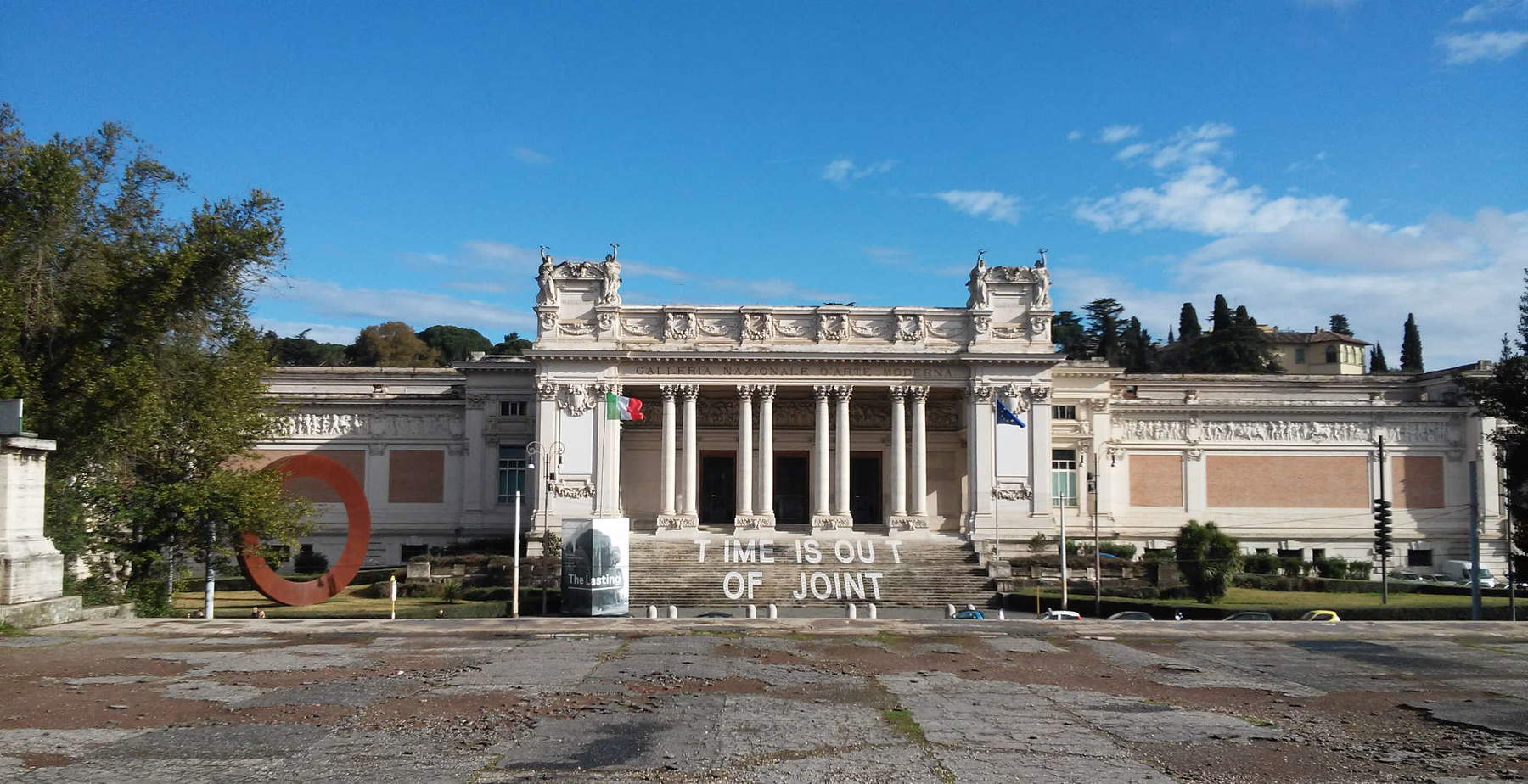Rome, criticism of current management of National Gallery of Modern Art from CUNSTA and CGIL
The management of the National Gallery of Modern and Contemporary Art is at the center of criticism coming from the National University Council for Art History (CUNSTA), which released an open letter criticizing the choices of the current director, architect Renata Cristina Mazzantini. CUNSTA has also obtained the support of the Cgil Funzione Pubblica of Rome and Lazio, which already in October denounced the “repressive climate” that one would breathe within the institute. Among the main accusations were the lack of confrontation with the Scientific Committee, events deemed contrary to the museum’s mission, the decision to return of two important archives (the Lonzi archive and the Bragaglia archive) to their owners who had granted them to the museum, and the prolonged closure of the library without a plan to reopen it.
CUNSTA stands with Federica Muzzarelli and Stefania Zuliani, who, together with Professor Augusto Roca, resigned from the Gallery’s Scientific Committee on October 9. The main reason for this would be the Director’s failure to consult on the institution’s cultural strategies. According to the Council, the absence of dialogue made the Committee a de facto useless body, a situation aggravated by Mazzantini’s own statements in a television interview.
But the criticism does not stop there. The CUNSTA denounces how the Gallery’s programming has deviated from its institutional mission: "the presentation of the book by Italo Bocchino, editor of the Secolo d’Italia, an event of a blatantly political nature, is only one of the cases, made more serious, however, by the referral to the MIC of the employees who had distanced themselves from that choice," the letter reads.

Another critical issue concerns the Gallery’s archives. Last spring, the Director had announced plans to return two important collections of documents on contemporary Italian art to their owners: the Carla Lonzi and Anton Giulio Bragaglia archives. The decision immediately provoked reactions in the academic world. A first mobilization, promoted by art historian Ilaria Schiaffini, led to the declaration of the Lonzi Archives as a fund of “particularly important historical interest” by the Archival and Bibliographic Superintendence of Lazio on November 14. Despite this recognition, the Lonzi papers were nevertheless returned to the heir, who subsequently deposited them with the Lelio and Lisli Basso Foundation. “While we are all and all pleased with the reception of the archive at such a noble Roman institution, which more and better than others will guarantee its opening and consultation, its elective destination, given Lonzi’s interests, would have been the National Gallery of Modern Art in Rome,” CUNSTA points out.
Added to all this is the closure of the Gallery’s library and archives, which took place in July for unspecified “urgent and unpostponable works of plant and regulatory adaptation.” After more than seven months, CUNSTA complains, “the work has still not begun, nor has a timetable been announced.” In the meantime, as also lamented in the Fp CGIL’s Feb. 5 communiqué, “the staff in charge has been assigned to other duties, and the library manager has been transferred to another institution after some 20 years of service in the Gallery. The closure of the library and archives, which had not occurred since 1946, for so long and without alternative measures of consultation, creates a serious damage for the international scientific community, for female students and students of art history who find themselves unable to pursue their research.”
For these reasons, the Council calls for “a solution so that the library and archives, peaks of excellence of the Gallery, are immediately reopened to the public, in forms compatible with the need to adapt the premises. In denouncing situations that risk disqualifying a Museum to which we are all and all very attached, we finally invite, once again, the Director to a public meeting with representatives of CUNSTA to discuss the above-mentioned points and, more generally, her plans for the future of the Gallery.”
It remains to be seen whether Director Mazzantini will respond to the call or whether tensions within the Gallery will continue to escalate. In the meantime, as anticipated, the CGIL also supports CUNSTA: “In the letter, the Council,” reads a note from the union, “reiterated our complaint about the state of the library and the resettlement of the workers in charge. The lack of a certain timetable on the plant and regulatory upgrades are not only a cause of discomfort for the workers, but also a damage to the scientific community, since the Library is a point of reference for the study and research on contemporary art not only for internal staff and ministry officials, but also for students and researchers. FP is on the front lines to defend GNAM and its staff.”
 |
| Rome, criticism of current management of National Gallery of Modern Art from CUNSTA and CGIL |
Warning: the translation into English of the original Italian article was created using automatic tools. We undertake to review all articles, but we do not guarantee the total absence of inaccuracies in the translation due to the program. You can find the original by clicking on the ITA button. If you find any mistake,please contact us.




























